News
Customize list
-

Prešeren Prizes presented to students at the University of Ljubljana
As part of University Week, the University of Ljubljana (UL) presented the Prešeren Prizes to its students. The Prešeren Prizes are awarded for outstanding student achievements in the fields of science and the arts. The guest speaker at the ceremony was Prof. Dr Igor Švab from the UL Faculty of Medicine.
-

Centre of Excellence in Green Heritage Science to Be Established in Slovenia
In a collaborative European partnership, the University of Ljubljana is in the process of establishing the Centre of Excellence in Green Heritage Science. The new Centre will bring together an interdisciplinary community of researchers – from archaeologists and chemists to computer scientists and conservator-restorers – who develop knowledge in the understanding and management of cultural heritage. The development of the Centre is being led by Professor Matija Strlič.
-
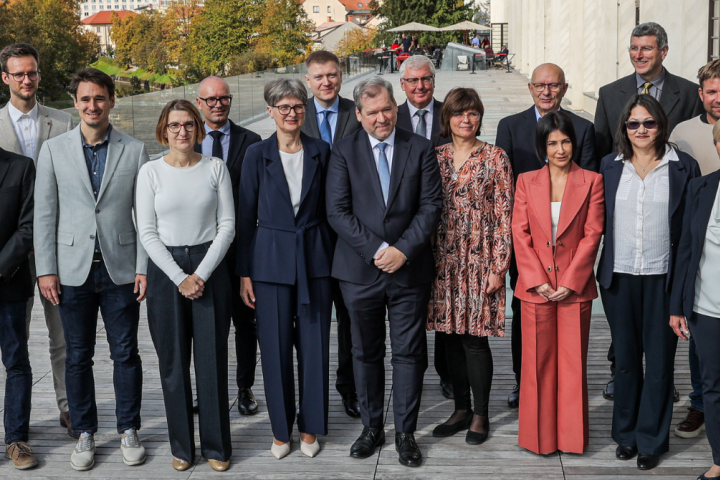
The recipients of the highest national prizes and awards in the field of science for 2025 have been announced
The Minister of Higher Education, Science and Innovation, Dr Igor Papič, and the President of the Committee of the Republic of Slovenia for the Awarding of Prizes and Awards for Outstanding Achievements in Scientific Research and Development, Prof. Dr Nataša Vaupotič, have announced this year’s recipients of the highest national prizes and awards in the field of science. The recipients include several scientists from the University of Ljubljana.
-
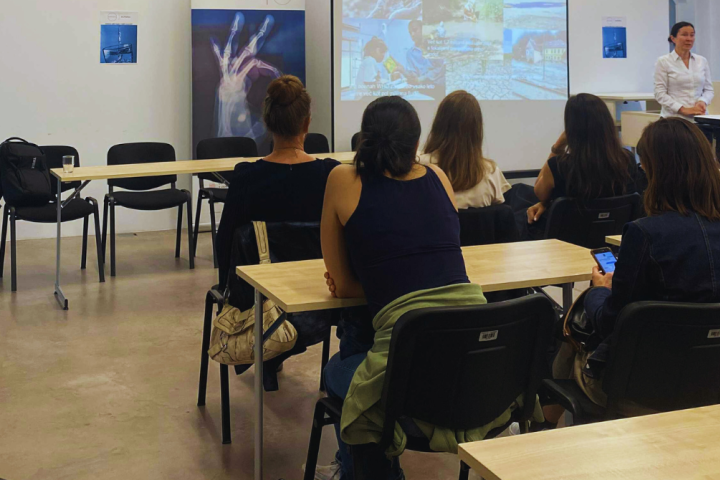
EUTOPIA_HEALTH Science Cafe: caring for drinking water is not a matter of rules, but a common concern for all
At the Science Cafe event, which aimed to transfer knowledge about drinking water from academia to the public, we explored how drinking water is produced, the factors that influence it, and how individuals can improve water quality. We also discussed how to better inform the public about the state of their local drinking water.
-

Statement by the management of the University of Ljubljana on participation in European projects and remarks by the UN Special Rapporteur
The University of Ljubljana is following the situation in Gaza and the suffering of the population with great concern. As an academic institution founded on respect for human rights, we are firmly committed to strict adherence to international law. We express our deep sympathy for all those affected by the violence and the ongoing humanitarian crisis.
-
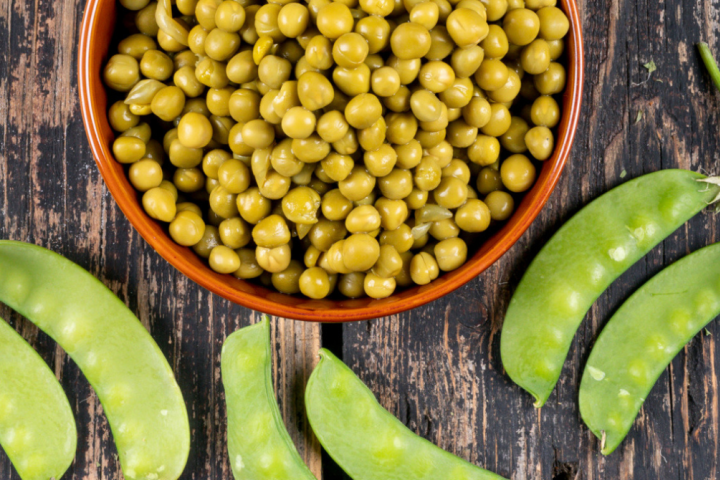
How to Enrich the Nutritional Value of Flour – Collaboration Between Slovenian Industry and Academia
Researchers from the Biotechnical Faculty and the Faculty of Chemistry and Chemical Technology at the University of Ljubljana have successfully developed a process for improving the nutritional value of pea flour through lactic acid fermentation. The interdisciplinary study, conducted in collaboration with a Slovenian food processing company goes beyond academic boundaries and presents a significant commercial value for the techonlogical application on an industrial scale.
-
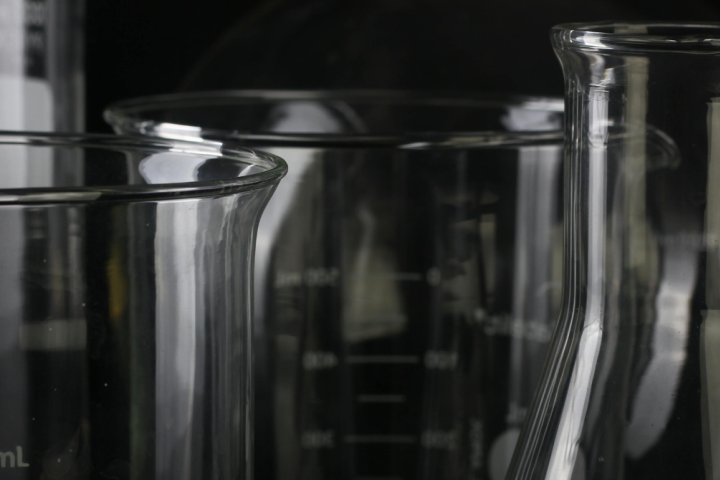
Dr. Liju Raju is a recipient of the MSCA 2024 Postdoctoral Fellowship at UL FKKT
Dr. Liju Raju, post-doctoral researcher at the University of Ljubljana, has been awarded the prestigious Marie Skłodowska-Curie Action (MSCA) postdoctoral fellowship for his project CHITOCAT. The research work will be conducted at the Faculty of Chemistry and Chemical Technology under the mentorship of Dr. Ross Jansen van Vuuren.
-

How nanoparticles for fuel cell applications continuously change
Proton exchange membrane fuel cells use hydrogen as a fuel and are one possible alternative to internal combustion engines that run on fossil fuels. The wider deployment of fuel cells, and thus the potential to reduce greenhouse gas emissions, is hampered by their cost. They require the expensive and scarce metal platinum to operate efficiently.
-
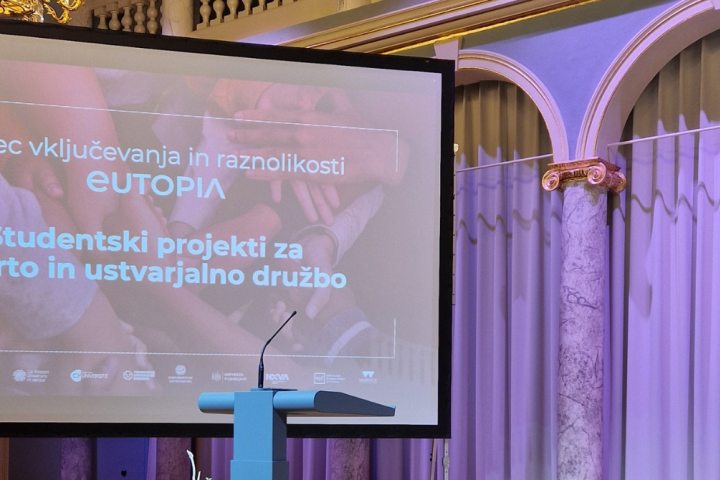
Students for an open and creative society
EUTOPIA’s Inclusion and Diversity Month highlighted a range of student-led projects funded by the Alliance, addressing contemporary issues of inclusion and exclusion with a solution-oriented approach.
-

UL FKKT Celebrates the 20th Anniversary of the International Master’s Program MESC
The Faculty of Chemistry and Chemical Technology at the University of Ljubljana is one of the partners in the international master's program MESC (Materials for Energy Storage and Conversion, also known as i-MESC). Since its establishment in 2004, the program has been recognized as an educational initiative of the Alistore Network of Excellence, addressing the growing need for education in the fields of electrochemistry and green technologies, which are part of the European Green Deal. This week, from July 3 to July 5, 2024, in Amiens, France, the program is celebrating its 20th anniversary.
-

New Ways of "Recognizing" Biological Molecules
For the normal course of all life processes, the cooperation of multiple biomolecules is required, such as various proteins, DNA molecules, etc. It is crucial that specific molecules form mutual 'contacts' to execute a particular biological process. But how do different molecules "know" which ones should meet?
-
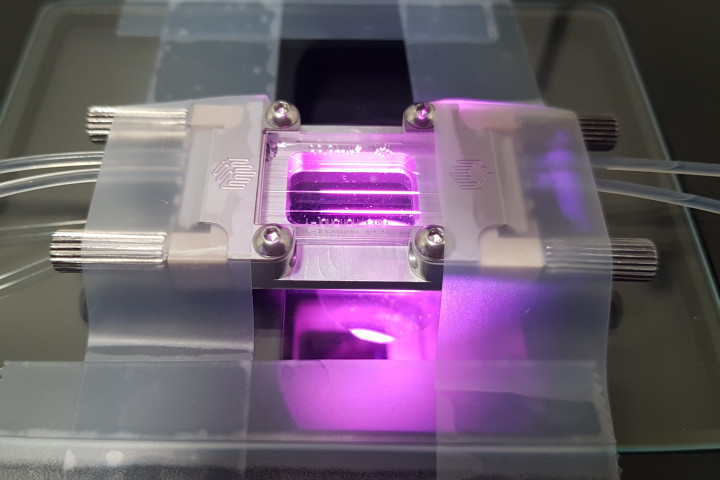
Researchers from the Faculty of Chemistry and Chemical Technology of the University of Ljubljana have obtained a Twinning project in the field of continuous (bio)catalytic processes
Under the leadership of Prof. Dr. Polona Žnidaršič Plazl, researchers from the Faculty of Chemistry and Chemical Technology of the University of Ljubljana (UL FKKT) have obtained a Twinning project titled "Twinning for Building Excellence and Innovative Solutions in Flow Catalysis" – FlowCat.
-

A new discovery important for research and treatment of dementia and ALS
Slovenian researchers led by Prof. Dr Boris Rogelj from the Faculty of Chemistry and Chemical Technology University of Ljubljana, and the Department of Biotechnology, Jožef Stefan Institute, have discovered new mechanisms associated with a mutation in the C9orf72 gene. This research is important because it further reveals the causes of two diseases – amyotrophic lateral sclerosis (ALS) and frontotemporal dementia (FTD) - and, as a consequence, increases the potential for developing new treatments for these two diseases.
-

Irregularities in hydrogen fuel cell catalysts
The increasingly evident consequences of climate change are a major motivation for the development of low-carbon technologies, among which fuel cells, using hydrogen as fuel, hold great promise. One of the obstacles to the wider commercialization of the technology is the use of expensive and rare platinum in catalysts, which is why effort goes into trying to reduce the amount of platinum used while preserving the relevant properties of these materials. For the oxygen reduction reaction, one of the reactions in a fuel cell, we use catalysts with alloyed nanoparticles containing platinum and cheaper transition metals. Since certain defects in the nanoparticle structure can occur during the preparation of the catalyst, the effects of all aspects of the structure on the performance in the fuel cell need to be studied in detail.
-

A research breakthrough in the dating of historical books
Heritage scientists can now date historical paper using only infrared light and computational analysis of spectroscopic data. In the research of postdoctoral researcher Dr. Floriana Coppola and colleagues, which is published in the top scientific journal 'Journal of the American Chemical Society', shows that it is possible to date paper extremely accurately, even to 2 years. An uncertainty this low is not possible with any other method, much less with a non-destructive method.
-

Preserving the inflatable Trump baby blimp
Researchers at the Heritage Science Laboratory Ljubljana (HSLL) of the Faculty of Chemistry and Chemical Technology, researchers at University College London (UCL) and conservators at the Museum of London have collaborated in interdisciplinary research in the field of heritage science, studying the stability and risk of displaying the 6-metre high and 3-metre wide polyvinyl chloride (PVC) inflatable. The results of chromatographic analysis of the material, studies of accelerated degradation of model samples and modelling diffusion and evaporation enabled the conservators to assess the environmental risks to the object during storage and exhibitions.
